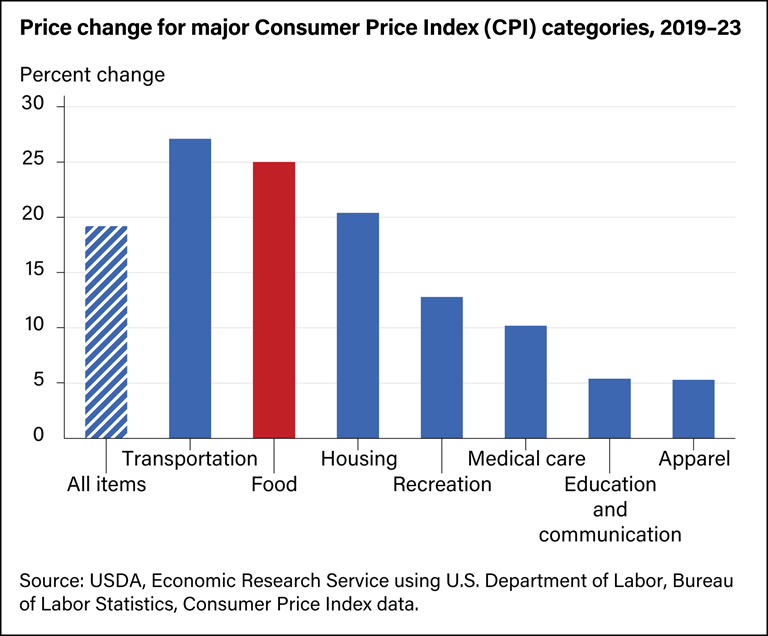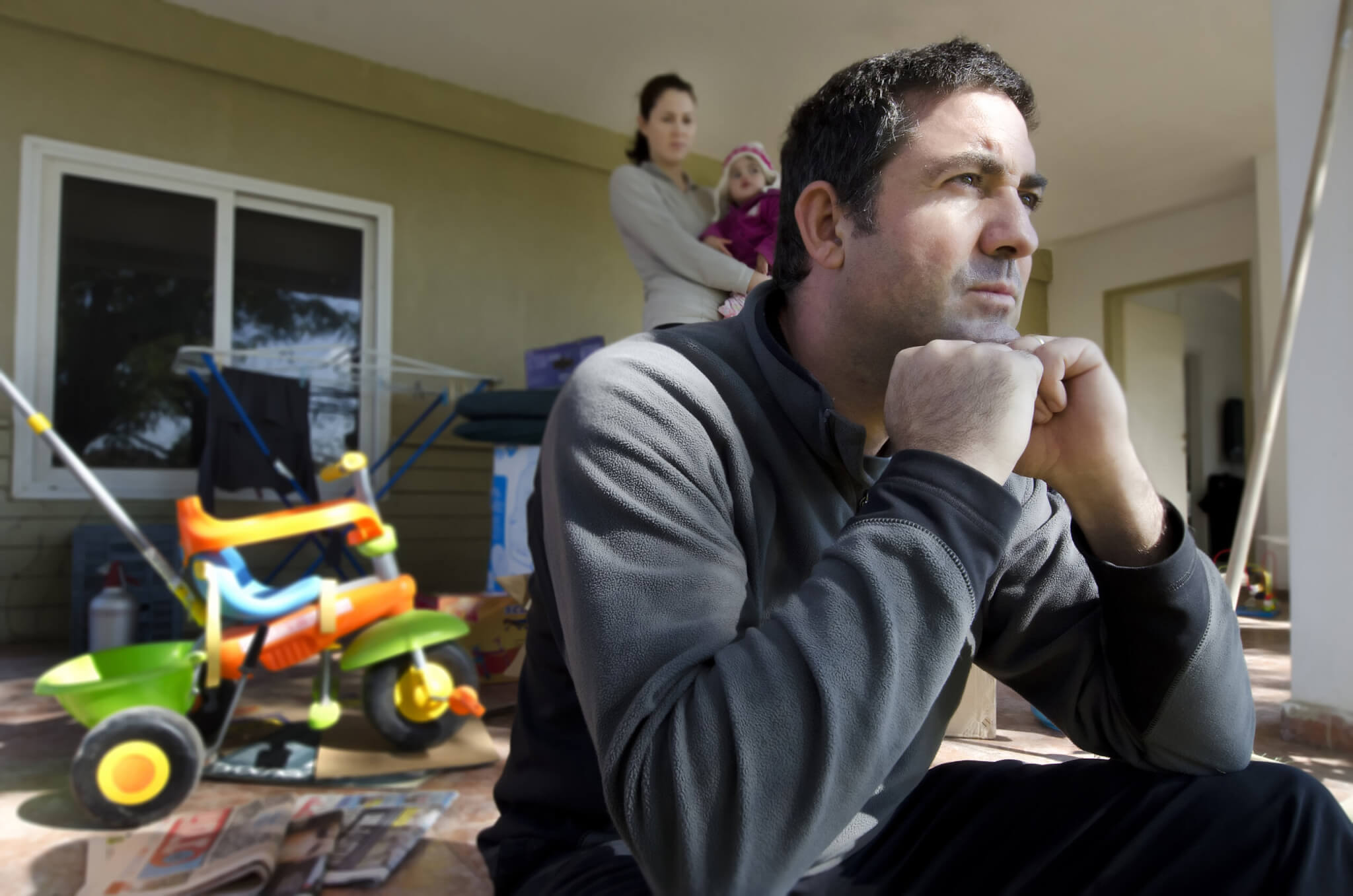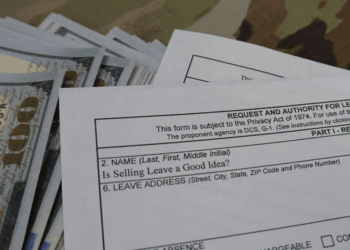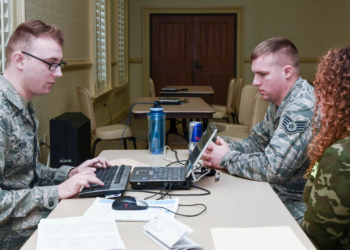A recent client of Navy-Marine Corps Relief Society looked weary as they sat across from their NMCRS caseworker, and said, “Adulting is hard. Thank you for helping me.”
It’s a common refrain right now, representatives from the military aid societies share. Like almost everyone else, current economic conditions are actively harming the military community.
“The increased costs of food are an issue for our sailors, Marines and families,” said Dawn Cutler, NMCRS’ executive vice president and chief operations officer. “Many clients seek resources such as where to find affordable groceries and food banks.”

Food prices rose 25% from 2019 to 2023, according to U.S. Department of Agriculture. Factors such as supply chain issues, Ukraine conflict, and bird flu are cited as contributing to “economy-wide inflationary pressures,” and military family organizations are adapting program support to address current needs.
READ MORE: 5 hacks to make those groceries stretch amid rising food costs
Shannon Razsadin, president and executive director at Military Family Advisory Network, labeled what’s happening financially in the U.S. as “the perfect storm” for the military community.
“Our research [at MFAN] shows that frequent moves on a growing family coupled with uncertainty economically can really be a big stress to the budget,” Razsadin said. “And the formula for BAH has not necessarily kept up with what the economy demands.”
Certain areas of the nation are being hit harder than others, said both Cutler and Razsadin. Cutler pointed out that in San Diego, California, an E4 and below with dependents only gets $3,579 in BAH — but the average two-bedroom rental costs $3,172, not including utilities, while gas prices for that area soar above the national average. At the time of reporting, a gallon of gas in the Golden State is $5.34 compared to the national average of $3.64.
MFAN, meanwhile, launched a new effort last December at Fort Cavazos, Texas, where it was found that service members are experiencing higher-than-average challenges like food insecurity, according to MFAN research. In response, the organization created the PCS Pantry Restock Box. It contains everything from shower curtains and cleaning supplies to shelf-stable pantry items and children’s games, all worth roughly $150.
“We wish families weren’t faced with these challenges but recognize the complexity of these issues,” Razsadin said. “The Army is distributing these kits through family support offices and also working with organizations, like the YMCA, so we can really make sure people are getting the support when they arrive in a way that has no barrier to entry.”
If you are a military family stationed at Fort Cavazos, visit MFAN’s website for more information on the PCS Pantry Restock Box.
The Air Force Aid Society is also seeing an increase in assistance needs. Requests for basic living expenses, as an example, have almost doubled from 2022 to 2023, according to AFAS Chief Operating Officer Kris McBride. The organization supports both airmen and guardians.
“It really boils down to, yes, service members have a steady paycheck that comes on the 1st and 15th of the month, but I also think the pay hasn’t necessarily adjusted to the state of inflation and cost of goods and housing,” she said. “We definitely saw an increase this year compared to last year for assistance with food support, housing and vehicle repairs.”
McBride shared some recent examples of AFAS giving: a retired tech sergeant with a past-due electric bill, a car in the shop and little food in the pantry. An active-duty airman in a domestic violence situation who had no funds for food, gas or rent. A senior airman who got overpaid by finance, who then repossessed the money, leaving her and her children with almost nothing.
The 2023 AFAS Impact Report revealed $5.3 million was distributed for emergency assistance, including expenses for vehicles, medical and moving.
NMCRS similarly gives out grants for these types of situations while also providing financial education.
“The lack of financial education and practical application is one of the greatest shortfalls we are seeing,” Cutler said. “It’s never too late to learn how to manage your finances. Knowledge is power.”
Above all, Razsadin wants military families to know that there is power in community.
“I think there’s a culture of pride that can create a barrier to asking for help, but one of the silver linings of awareness around things like food insecurity is that they don’t have to struggle as much quietly,” she said. “There is help being made available because military families are not alone in whatever they are dealing with.”
Connect with branch aid societies for more information about support programs:
Air Force Aid Society: https://afas.org/
Army Emergency Relief: https://www.armyemergencyrelief.org/
Coast Guard Mutual Assistance: https://mycgma.org/
Navy-Marine Corps Relief Society: https://www.nmcrs.org/
Read comments








































